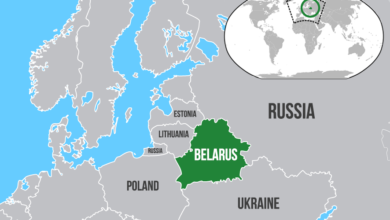Just before the major imperialist countries met in Toronto for the G20 summit in late June, both Britain and Germany announced austerity measures to balance budgets and cut their respective debts. The measures include cutbacks in public services, pay cuts, wage freezes and across-the-board tax increases. Germany and Britain would thus join a growing list of European Union countries that have joined the “austerity club.”
The European ruling classes, like the U.S. ruling class, is using the worldwide capitalist economic crisis as the backdrop for increased attacks on public sector workers, education and other social services.
Other European countries have already implemented or announced plans to implement austerity measures. The Spanish parliament passed a proposal to reduce public sector workers’ wages. France, following a series of attempted austerity measures, is now pushing to raise the retirement age from 60 to 62 years. In Ireland, the government trimmed unemployment benefits. Portugal, in addition to raising taxes and cutting wages, plans to freeze publicly financed projects such as the new Lisbon airport.
Harshest spending cuts in decades
Despite campaign promises to the contrary, newly elected British Prime Minister David Cameron announced the harshest spending cuts in decades. On June 22, he revealed plans to cut 11 billion pounds ($16.7 billion) from a welfare bill, and to add 8 billion pounds ($12.1 billion) in tax increases. Sales tax will go from 17.5 percent to 20 percent in January 2011, and there will be a two-year freeze on public sector pay, a three-year freeze on child benefits and cuts of more than 25 percent in other areas. There will, however, be a decrease in the corporate tax rate.
In Germany, touted as the strongest economy in Europe, Chancelor Angela Merkel defended her government’s plans to save $80 billion through cutbacks and new taxes.
Cameron and Merkel, like other European politicians, claim that there is no other way to solve the budget crisis and that everyone must pay. But not everyone is making the same sacrifices. Banks and major corporations—which bear the responsibility for the crisis—are not being asked to accept cutbacks. War budgets are not being slashed. In fact, Britain doubled the operational allowance for troops in Afghanistan at the same time as cuts were announced.
The workers of Europe as a whole are suffering due to the same global capitalist crisis caused by the relentless drive for profit led by the transnational banks and corporations, and exacerbated by government policies of bailouts for the rich and cutbacks for working people and the poor.
Ironically, President Obama expressed concern in a letter to the G20 leaders warning against excessive spending cuts. The U.S. capitalists are worried that the spending cuts will stunt economic growth in Europe, possibly for years, and affect the ability of the United States to pull out of its own economic slump. While Obama urges Europe not to make these drastic spending cuts, he—with the support of the U.S. capitalist class—has gone along with if not promoted outright the slashing of public programs and unemployment benefits right here at home, while increasing spending on war and occupation.
Before the G20 Summit took place in Toronto, leaders from Britain, Germany and France halfheartedly announced intentions to find support for a new “global financial transaction tax” to force financial institutions to make a “fair contribution” to resolving the worldwide financial crisis. No such tax came from the summit.
The world’s wealthiest and most privileged strata, the bankers and investors who caused this crisis in the first place, have not been held accountable. We need only to look at the final communique of the G20 Summit for proof of the ruling classes’ intentions: not one penny in tax for banks or financial transactions, while governments are urged to slash their deficits in half by 2013. That can only mean the smashing of social safety nets and job loss in the middle of an economic crisis.
The European capitalists are certainly concerned about the debt crisis and its potential impact on the euro, other currencies and the capitalist system as a whole. The Greek crisis is still fresh in their minds. Greece teetered on the brink of bankruptcy and even threatened the existence of the European Union before a $1 trillion rescue package was arranged.
The Greek ruling class—and other European capitalists—had called for a 20 percent reduction of workers pay, 10 percent tax increase on gas, liquor and cigarettes, as well as raising the age of retirement, among other measures. Greek workers responded with strikes, marches and rallies. Greek capitalists have been met with at least five strikes and other actions of hundreds of thousands of Greek workers in the streets.
Herein lies an alternative solution to the austerity measures offered as the solution to the budget and economic crises taking place worldwide. The capitalists peddle cutbacks as the only answer not because there are no other options, but because cutbacks shift the costs of the crisis onto the backs of workers and off their own. The organization and militancy of workers is the force that can turn the tide and make the banks and corporations pay for their own crisis.






